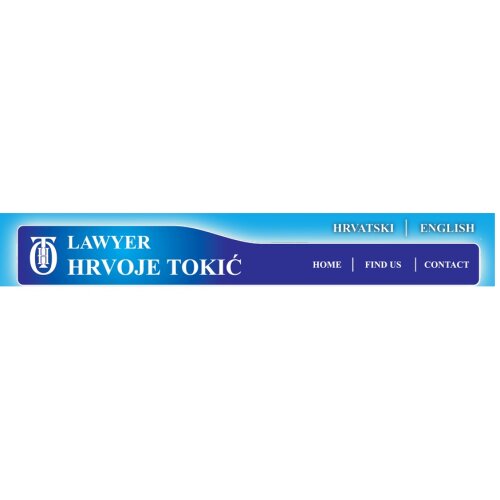Best ESG Advisory & Compliance Lawyers in Croatia
Share your needs with us, get contacted by law firms.
Free. Takes 2 min.
Or refine your search by selecting a city:
List of the best lawyers in Croatia
About ESG Advisory & Compliance Law in Croatia
Environmental, Social, and Governance (ESG) Advisory & Compliance law in Croatia is an emerging field that addresses how businesses meet their responsibilities regarding environmental protection, social responsibility, and ethical governance. As Croatia integrates further with European Union standards and global sustainability trends, companies operating in the country are increasingly required to demonstrate their commitment to transparent, ethical, and sustainable practices. ESG law aims to ensure that organizations operate in ways that are sustainable for people, the planet, and profit, encompassing regulatory compliance as well as broader corporate accountability.
Why You May Need a Lawyer
Companies and individuals may need legal assistance in the field of ESG Advisory & Compliance for various reasons. Common situations include:
- Adapting corporate policies and practices to comply with new ESG regulations and reporting requirements.
- Understanding EU directives and how they apply to Croatian operations, especially in cases involving cross-border business.
- Responding to regulatory investigations or audits regarding ESG compliance.
- Risk assessment and management relating to environmental, social, or governance concerns.
- Preparing and reviewing ESG disclosures, sustainability reports, or non-financial statements.
- Handling disputes, regulatory penalties, or reputational damage resulting from alleged non-compliance.
- Guidance on integrating ESG factors into contracts, supplier relationships, and corporate governance structures.
- Mergers, acquisitions, or investments where ESG risks and obligations need to be considered during due diligence.
A lawyer with expertise in ESG can help ensure compliance, reduce risk, and build a sustainable business reputation.
Local Laws Overview
The legal landscape for ESG Advisory & Compliance in Croatia is shaped by both national regulations and European Union directives. Key aspects include:
- The Non-Financial Reporting Directive (NFRD), as transposed into Croatian law, requires certain large companies and groups to disclose information on environmental, social and employee matters, respect for human rights, and anti-corruption and bribery.
- The EU Taxonomy Regulation and Sustainable Finance Disclosure Regulation (SFDR) influence reporting standards and investment decisions for financial market participants in Croatia.
- The Act on Corporate Social Responsibility (Zakon o društveno odgovornom poslovanju), which promotes voluntary adoption of socially responsible business practices among Croatian companies.
- Environmental protection laws, including the Environmental Protection Act and related regulations, set standards for waste management, emissions, and use of natural resources.
- Labour and anti-discrimination laws define requirements for social responsibility, employee rights, and workplace equality.
- Corporate governance standards are detailed in the Companies Act and regulations from the Croatian Financial Services Supervisory Agency (HANFA).
Non-compliance with these regulations can result in financial penalties, loss of market opportunities, or reputational harm, making legal guidance crucial for businesses operating in Croatia.
Frequently Asked Questions
What is ESG Advisory & Compliance?
ESG Advisory & Compliance is a legal and strategic service that helps companies understand, implement, and monitor policies related to environmental protection, social responsibility, and ethical governance.
Who is required to comply with ESG regulations in Croatia?
Generally, large public-interest companies with more than 500 employees, financial institutions, and listed companies must comply with ESG disclosure requirements. However, regulations are expanding, and smaller firms may also become subject to certain ESG standards in the near future.
What does the Non-Financial Reporting Directive require?
It requires eligible companies to publish an annual report covering their policies and performance on environmental, social, human rights, anti-corruption, and diversity issues.
How can a lawyer help my business with ESG compliance?
A lawyer can analyze your operations, create compliance strategies, assist with reporting requirements, offer risk management advice, and represent you in case of regulatory investigations.
Are there penalties for ESG non-compliance in Croatia?
Yes, penalties can include fines, regulatory action, negative publicity, and, in severe cases, restrictions on business operations.
What ESG issues are most relevant for Croatian businesses?
Key ESG issues include environmental impact, employee rights and workplace safety, anti-corruption measures, board diversity, and transparent corporate governance.
How do EU ESG regulations affect Croatian companies?
Since Croatia is an EU member, EU regulations on non-financial reporting, disclosure, and taxonomy apply directly to Croatian companies, shaping their obligations and corporate strategies.
Can ESG compliance affect investment opportunities?
Yes, investors increasingly consider ESG factors when assessing potential investments, and a strong record of compliance can make a business more attractive to both local and international investors.
Do Croatian SMEs need to be concerned about ESG compliance?
While most regulations currently target larger companies, SMEs are increasingly expected by partners, investors, and consumers to adhere to ESG standards, and future legal requirements may expand their obligations.
What is the role of the Croatian Financial Services Supervisory Agency (HANFA) in ESG?
HANFA oversees the application of financial regulations, including those that relate to sustainable finance and ESG disclosures in the Croatian financial market.
Additional Resources
For more information on ESG Advisory & Compliance regulations and guidance in Croatia, consider contacting or reviewing publications from the following organizations:
- Ministry of Economy and Sustainable Development
- Croatian Financial Services Supervisory Agency (HANFA)
- Croatian Chamber of Economy (HGK)
- Office for Human Rights and Rights of National Minorities
- Croatia Green Building Council
- European Commission - Representation in Croatia
These institutions provide guidelines, support, and regulation updates that are valuable for anyone looking to stay compliant with ESG standards in Croatia.
Next Steps
If you believe your company needs assistance with ESG Advisory & Compliance in Croatia, consider taking these steps:
- Evaluate your current ESG policies and identify any gaps or deficiencies.
- Gather relevant company documents and information related to environmental, social, and governance activities.
- Contact a qualified law firm or legal advisor specializing in ESG compliance.
- Schedule a consultation to discuss your specific needs and receive tailored legal advice.
- Stay informed about upcoming legislative changes at both the EU and national levels.
Early and proactive legal counsel can help your business achieve ESG compliance, reduce risks, and enhance your reputation among investors, customers, and regulators.
Lawzana helps you find the best lawyers and law firms in Croatia through a curated and pre-screened list of qualified legal professionals. Our platform offers rankings and detailed profiles of attorneys and law firms, allowing you to compare based on practice areas, including ESG Advisory & Compliance, experience, and client feedback.
Each profile includes a description of the firm's areas of practice, client reviews, team members and partners, year of establishment, spoken languages, office locations, contact information, social media presence, and any published articles or resources. Most firms on our platform speak English and are experienced in both local and international legal matters.
Get a quote from top-rated law firms in Croatia — quickly, securely, and without unnecessary hassle.
Disclaimer:
The information provided on this page is for general informational purposes only and does not constitute legal advice. While we strive to ensure the accuracy and relevance of the content, legal information may change over time, and interpretations of the law can vary. You should always consult with a qualified legal professional for advice specific to your situation.
We disclaim all liability for actions taken or not taken based on the content of this page. If you believe any information is incorrect or outdated, please contact us, and we will review and update it where appropriate.
Browse esg advisory & compliance law firms by city in Croatia
Refine your search by selecting a city.

















